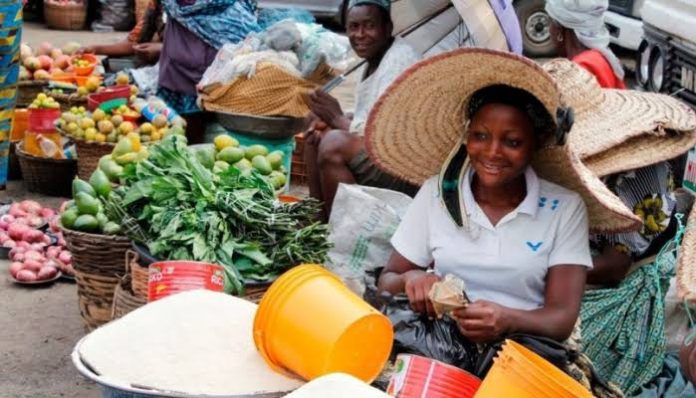the Lagos State Government has recorded over N3 billion food trade transaction at its mid-level agro produce hub at Idi-oro Mushin since its launch in December 2023.
The state’s Commissioner for Agriculture and Food Systems, Ms Abisola Olusanya, disclosed on Tuesday during the Ministerial Press Briefing to mark the sixth year in office of Governor Babajide Sanwo-Olu.
Olusanya said the hub inaugurated on Dec. 17, 2023, had recorded transactions worth over N3 billion with sales of farm fresh agro produce every Wednesday and Saturday.
She described the establishment of Lagos Cattle Transit Station, Ranches, Central Food Security Systems and Logistics Hub in Epe as a show of unwavering commitment by the administration towards raising the bar of the agricultural space.
She added that the development of the five-year agricultural and food systems roadmap as well as the food security systems policy document had been a source of guide towards ensuring productivity in the agricultural space.
“The Mid-Level Agro Produce Hub At Idi-oro Mushin was inaugurated on Dec. 17, 2023 by Mr. Governor, and has commenced market operations with sales of farm fresh agro produce every Wednesday and Saturday.
“So far, total value of transaction at the Hub since inception is put at over N3 billion.
“The hub is the second tier of the food system transformation agenda of the present administration in the state, additional three Mid-Level Agro Produce Hubs are at various level of construction at Agege, Abijo and Opebi.
“Governor Babajide Sanwo-olu has started a revolution in the agro space and this will enshrine the changes that Lagosians desire in having wholesome foods at affordable prices, processed under hygienic conditions and marketed in dignified facilities,” she said.
Olusanya noted that the population of Lagos state was projected to increase to about 24 million by 2030.
According to her, it becomes expedient to ramp up food production in the state.
“The food demand of the state will rise to N7.96 trillion per annum by 2030. At present, with the local food production output, the state will need to import food worth about N3.38 trillion per annum by 2030 to meet demand.
“In order to achieve 40 per cent local production, the state needs to grow its production by about 20 per cent per annum,” she said.
Reeling out the scorecard of the Ministry in the past years, the Olusanya said the state government through the ministry had implemented numerous programmes.
These programmes, she said, had impacted positively on food production, agro enterprises and created job opportunities in various segments of the agric value chain.
She said the state food system transformation agenda as well as produce for Lagos programme had redefined marketing, transportation, processing, while establishing upcountry partnerships for consistent supply food to the state.
She reiterated that the state government initiated the food discount markets, as well as farmer’s discount markets; the Ounje Eko initiative to cushion the effects of the high cost of animal feeds and support communities with affordable food through farmers subsidy programme.
“The state provided 800,000 households with subsidised food items under Ounje Eko Food discount Market Project, supported 3,726 poultry and fish farmers with subsidised feeds under Ounje Eko farmers’ Subsidy Programme, trained 300 youths in apiculture (bee keeping).
“The state also constructed farm access roads (13km), six jetties, 15 cottage processing centres for farmers across the state under the APPEALS and Lagos CARES projects in collaboration with the World Bank,” the commissioner said.
NAN


